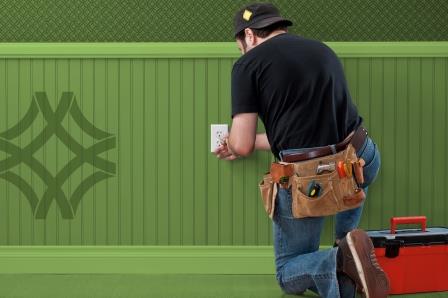
If you are considering refinancing your mortgage, it is a great time to consider saving money on home repairs with a home warranty from Simplicity Protection

Things to consider before refinancing
How do you decide if refinancing a home is worth it? There are several factors to consider including your current financial situation and goals. Let’s look at a couple of scenarios.
1% Rule of Thumb
This scenario says that if you can secure a loan with an interest rate 1 percentage point lower than your current interest rate, then you should refinance your mortgage. This scenario makes sense only if the cost of closing on the new loan does not push your monthly payment higher than your current payment. Also, factor in the length of your new loan and the break-even point when you will pay off the new closing costs.
Break-even Point Rule
The break-even point is the length of time it will take you to pay off the closing costs on your new loan. If you do not plan to remain in your home long enough to reach that break even point, then refinancing may not be a good decision.
Change Loan Terms
If you have a balloon, jumbo or accelerated loan that is impacted by rising interest rates, you may want to refinance to change the type of loan, especially if your financial status can not support an increased monthly payment.

Risks of refinancing the mortgage
When considering a refinance, you also need to factor in the risks. Taking a close look at these details will help you decide whether it’s worth refinancing your home.
Refinancing costs money
Typically, refinancing costs between 2% and 5% of the total loan amount. While you can roll these costs into your monthly mortgage payment, the increased cost might increase your monthly payment and erase any savings.
Refinancing resets the clock
Refinancing your mortgage creates a new loan with a 30-year terms. If you have been in your home for more than 15 years, a refinance would give you a new 30-year loan. If this feels unsettling, then a refinance might not be right for you.
Refinancing could cost more
Refinancing your home could cost you more in the long run, especially if you are near the end of the original loan and you refinance for a larger amount for with a cash-out loan. Not only would you have a new 30-year mortgage but the principal and the interest on the larger loan might not be financially feasible.

We are here to answer your questions!
Q: Is refinancing a waste of money?
The decision to refinance a mortgage should be based on your financial goals and situation. If you can lower your monthly payment and are comfortable with a new, longer-term loan, then refinancing isn’t a waste of money.
Q: How do I know if my refinance is worth it?
Use a refinance calculator to determine if you can secure a lower interest rate, reduce your monthly payment, and are comfortable with the break-even point of your loan.
Q: Why is refinancing not a good idea?
If the closing costs on the refinanced loan cause your monthly payment to be higher or you do not plan to be in the home for long, then refinancing may not be a good idea.
Q: What’s the catch with refinancing?
While there is no ‘catch’ involved in refinancing, it’s important to do you research, use a refinance calculator and consult your lender before deciding to refinance a home loan.
Q: What are the reasons not to refinance your home?
Refinancing a home could cost you more in the long run and impact your credit score.
